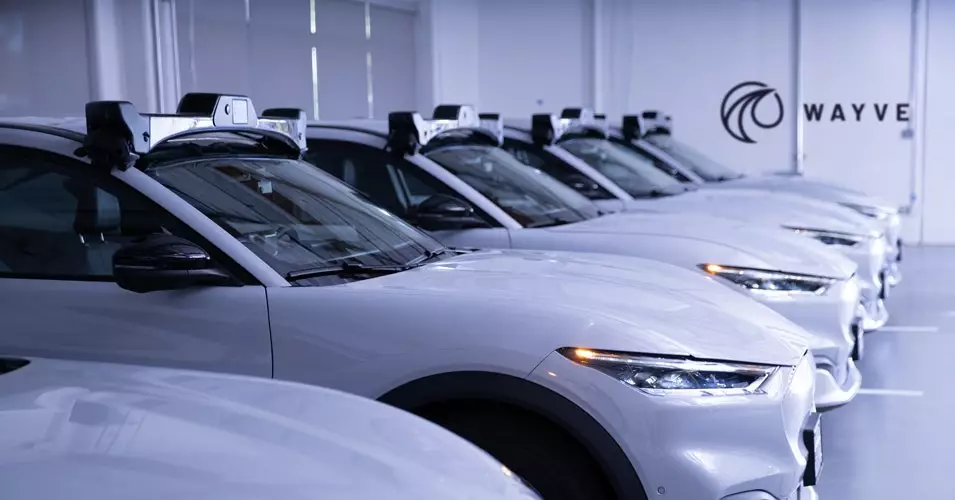As I step into the headquarters of Wayve, I am greeted not just by an impressive spread of gourmet lunch options but also by the palpable energy that fills the room. This small but rapidly growing company, founded in 2017, has recently gained significant traction in the tech industry, particularly after securing substantial funding from SoftBank earlier this year. With 385 employees operating in London and an additional base of 450 staff in Sunnyvale, California, it is evident that the company is scaling quickly, fueled by a vision that is both ambitious and attainable.
Wayve’s journey has been marked by the typical challenges seen within the tech sector, especially in the realm of autonomous vehicles (AVs). The company’s emergence onto the public stage comes at a time when many others have faltered, with notable giants like Apple and Uber withdrawing from their AV programs after facing insurmountable obstacles. This context makes Wayve’s ascent notable, as it signals a potential shift within a landscape that many deemed disillusioned by lofty promises that have yet to materialize.
Reframing the Path to Autonomy
The shift in perception surrounding self-driving technology is noteworthy. With Waymo providing around 150,000 driverless rides weekly across major cities, and other companies like Tesla showcasing their innovations, there seems to be renewed optimism in the field. But what sets Wayve apart is its unique approach. While many companies have pursued traditional methods in developing AV technology—relying on hand-coded algorithms and extensive infrastructure investments—Wayve has adopted a wholly AI-driven strategy.
Alex Kendall, the company’s co-founder, embodies a fresh kind of leadership essential for this transformative era in autonomous driving. His insights during our conversation revealed a deep understanding of the necessary paradigm shift; he noted how most contemporary approaches to self-driving cars suffer from an over-reliance on existing paradigms that may not be applicable to the future of intelligent machines. Instead, Kendall advocates for seeing autonomous driving as an advanced AI challenge, one that can adapt and learn in real-time, thereby streamlining the deployment of AVs across various environments.
What continues to impress about Wayve is its potential for scalability. Despite not having the same resources as titans like Waymo, the company’s innovative AI-driven framework means it could potentially expand its service offerings more rapidly than its competitors. By allowing its vehicles to learn from their surroundings instead of being programmed rigidly, Wayve hopes to tailor its technology to various urban contexts without the cumbersome prerequisites that have slowed down other initiatives.
This approach reflects broader trends in the tech industry, where adaptability and rapid evolution have become invaluable traits in product development. The lessons learned from past failures in the AV sector have likely shaped Wayve’s strategy, emphasizing the importance of flexibility in the face of unforeseen challenges. With partnerships and expansions, such as the planned autonomous ride-hailing service in Zagreb slated for next year, Wayve is well-positioned to carve a niche in the arena of transport innovation.
The success of startups like Wayve could also signify a foundational change in how cities might function and the way communities design their transportation systems. The emphasis on autonomous driving might not only redefine individual commuting but could also reshape urban planning. As vehicles become smarter and more integrated, urban spaces will need to evolve to accommodate these new forms of transportation.
As Wayve continues on this promising trajectory, it serves as an emblem of resilience and ingenuity in the ever-evolving tech landscape. With its focus on utilizing AI and fostering adaptive learning, Wayve is not just another player in the autonomous vehicle arena; it is redefining what it means to be a self-driving company in a post-disillusionment world. The future of transport may very well rest in the hands of visionaries like Alex Kendall, who understand that the road to automation is paved with innovation, determination, and an unwavering belief in the potential for growth.

